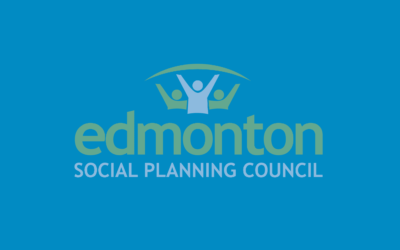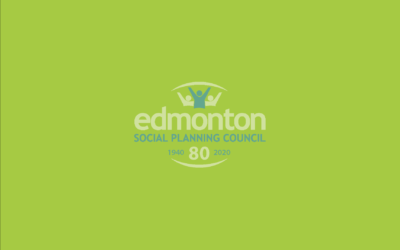Blog: World Day of Social Justice – Current Status and What’s Next?

The impacts of COVID-19 have made social justice progress backward. This progress can only advance again with action-oriented policies and programs that shall be attainable and adaptable for multi-sectors.
By Riza Galang , ESPC Volunteer
Yearly, the World Day of Social Justice is observed internationally every February 20. The global observance was formed by the United Nations and aims to promote equal opportunities for all.
Social justice refers to the fair treatment and equitable opportunities that everyone receives. It is frequently equated with justice itself in theoretical terms. Social justice covers employment, income distribution, healthcare, security, education, and other societal areas. Human rights violations and discrimination continue even in a culture where social justice occurs.
The global state of social justice
Inequalities and poverty continue to increase in most parts of the world. COVID-19, economic turmoil, and geopolitical unrest has pushed social justice backwards for many countries. The pandemic has caused massive employment reductions and has disrupted education for billions of children. In 2020, the global unemployment rate hit 6.5%, climbing 1.1% higher from the previous year. (1) Youth and women had the greatest number of unemployment rates, soaring to 8.7% and 5%, respectively. (1) It is estimated that students globally are eight months behind their usual academic classes. High-income nations such as North America and Europe are recorded four months behind, while low- and middle-income systems like sub-Saharan Africa, Latin America, and South Asia are recorded to be six months to twelve months behind. (2) Small and medium enterprises and corporations had to limit their operations while hospital staff and nurses are overworked. (3) This has caused high unemployment from different sectors and low morale for overburdened healthcare staff. The United Nations noted that the related drop in working hours in other industries produced a ‘jobs gap’ of 23 million last year. “This shortfall in employment and working hours comes on top of persistently high pre-crisis levels of unemployment, labour underutilization and poor working conditions.” – International Labour Organization (UN News, 2021). (4)
The state of social justice in Canada
In Canada alone, several social justice issues have been a continuous concern. Here are some of them:
- Violence against Indigenous girls and women – according to Statistics Canada, six out of 10 Indigenous women experience physical or sexual abuse. (5) This counts for both intimate partner violence and non-intimate partners. An estimate of 59% First Nations women, 64% Metis, and 44% Inuit women suffered from psychological, physical, or sexual violence. (5)
- Access to clean drinking water – Inadequate access to clean and safe drinking water is a major public health concern for the Indigenous Peoples. In 2021, more than 30 First Nation communities across Canada are subject to long-term water advisories that mean that their water is unsafe to drink. (6)
- Immigration detention – Human Rights Watch and Amnesty International said that Canada detains thousands of people (including with disabilities) on immigration-related reasons. It is reported that people in detention fleeing persecution are regularly handcuffed and held with little to no contact with their families. (6)
- Corporate Accountability – world mining companies that are based in Canada operates in more than 100 countries. To hold Canadian mining firms accountable for violations committed overseas, the government has repeatedly failed to carry out the promised reforms. (6)
- Counterterrorism – In northeast Syria’s guarded desert camps and prisons for Islamic State (ISIS) suspects and their families, around 40 Canadian men, women, and children continue to be unjustifiably and indefinitely incarcerated. (6)
- Environmental issues – The inability of international governments to address climate change is already having an increasing negative impact on underprivileged people in Canada. Warming temperatures and more erratic weather patterns are making it harder and riskier for Indigenous Peoples to obtain food from the land, while also decreasing the availability of their traditional food sources. A good example is the Inuit families that rely on fishing and hunting. The effects of climate change will impact their way of living, and will be hard for them to cope once the effects have been felt. (6)
- Systemic racism – while some Canadians view our country as inclusive, Black people and Indigenous Peoples experience discrimination at an estimated 46% and 33%, respectively. (7)
The state of social justice in Alberta
The government of Alberta is providing an additional $26 million to the social sector this year to address labour shortages and rising operational costs. (8) The Alberta Human Rights Commission reported resolving more than 18,000 human rights complaints over the past 25 years. (9) In 2021, the Case Inventory Resolution Project (CIRP) reported an increase of 1,000 public inquiries which comprised mostly of complaints related to COVID-19 pandemic. (10)
2021-2022 also revealed 169 unmarked graves at St. Bernard’s Indian Residential School in Northern Alberta. (11) Few days ago, there were also reported unmarked burials at the former Blue Quills Residential School in Saddle Lake. (12) The growing toll of uncovered graves may be endless, but one thing that we shall be reminded of is that these lives belong to each family, parents, and loved ones. These school children deserve proper and humane burial. Social justice, as we equate it to justice itself, must be served regardless of race.
What’s next?
It’s significant to know that without economic growth, social justice will be hard to achieve. Global issues such as healthcare, education, and employment can be addressed once there is a recorded increase in a country’s income. However, for social issues like human rights and systemic racism, it is critical to have quick and coherent action. Ongoing funding and access to information are what everyone needs while finding the truth behind each story. Adaptable, action-oriented, and sustainable programs need support and proactive approaches where every Canadian will have a chance to live their full potential.
Riza Galang is an international student and currently working part-time as a Marketing and Communications Lead in a non-profit arts organization. Her interests include hiking, music, nature, and soccer. She is a seasoned marketer with experience in campaigns, marketing automation, events, and demand generation.
REFERENCES:
- United Nations. (n.d.). Sustainable Development Goals Decent Work and Economic Growth. https://unstats.un.org/sdgs/report/2021/goal-08/
- McKinsey & Company. (2022, April 4). How COVID-19 caused a global learning crisis. https://www.mckinsey.com/industries/education/our-insights/how-covid-19-caused-a-global-learning-crisis
- Houngbo, Gilbert F. (2023). The world needs a strong and sustained dose of social justice. Here’s why. https://www.weforum.org/agenda/2023/01/ilo-global-coalition-for-social-justice-davos-2023/
- United Nations. (2021, June 2). COVID crisis to push global unemployment over 200 million mark in 2022. https://news.un.org/en/story/2021/06/1093182
- Taylor, Brooke. (2021, May 19). 6 in 10 Indigenous women experience physical or sexual abuse: Statistics Canada. https://www.ctvnews.ca/canada/6-in-10-indigenous-women-experience-physical-or-sexual-abuse-statistics-canada-1.5435599
- Human Rights Watch. (n.d.). World Report 2022 Canada Events of 2021. https://www.hrw.org/world-report/2022/country-chapters/canada
- Statistics Canada. (2022, February 16). https://www150.statcan.gc.ca/n1/pub/85-002-x/2022001/article/00002-eng.htm
- Government of Alberta. (2022, December 21). Investing in Alberta’s social sector. https://www.alberta.ca/release.cfm?xID=86201231FB305-D17A-EFB5-D07B72C7BEC9CE0E
- Alberta Human Rights Commission. (n.d.). Alberta Human Rights Commission marks 50 years. https://albertahumanrights.ab.ca/50for50/Pages/text.aspx
- Alberta Human Rights Commission. (n.d.). Annual Report 2021-2022. https://albertahumanrights.ab.ca/about/Documents/Annual%20Report%202021-22.pdf
- Bourne, Kirby. (2022, March 6). 169 potential unmarked graves found at St. Bernard’s Indian Residential School in northern Alberta. https://globalnews.ca/news/8652368/alberta-high-prairie-residential-school-unmarked-graves/
- Amato, Sean. (2023, January 25). ‘Evidence of a genocide’ found during search of Alta. residential school: First Nation investigators. https://edmonton.ctvnews.ca/evidence-of-a-genocide-found-during-search-of-alta-residential-school-first-nation-investigators-1.6244038


